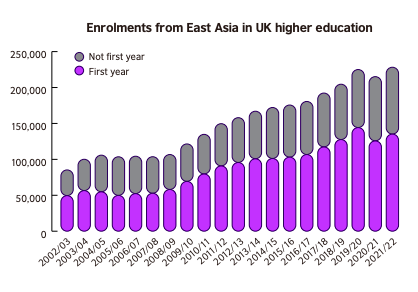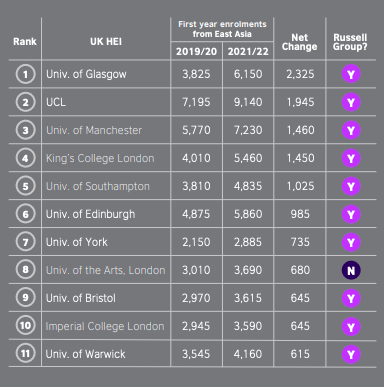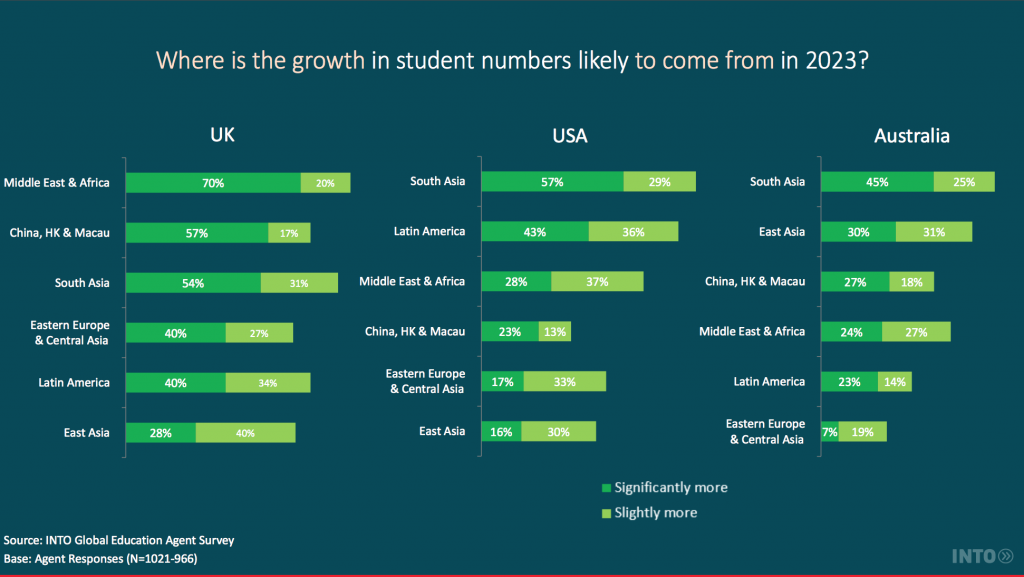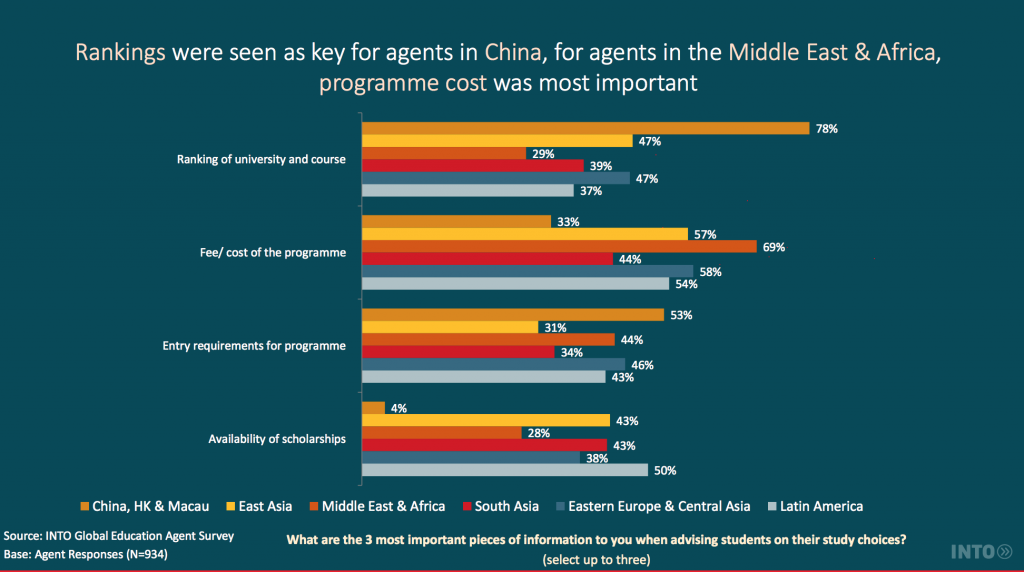Post-study work “a driving influence” for int’ls – report
Post-study work rights are a “driving influence” when looking to study abroad, according to new research surveying over 20,000 international students.
In the third iteration of Emerging Futures research from IDP Connect, 63% of the respondents said it would directly influence their choice in where they study – and 44% even said they would consider changing their choice if the post-study visa options were shortened.
“Students are weighing up a number of factors when choosing where to study but the ability to gain work experience post-graduation remains number one,” said Simon Emmett, CEO of IDP Connect.
“What the findings demonstrate is that by creating a clearer pathway from education to employment, destination countries will see demand increase from a greater number and more diverse set of countries,” he continued.
Almost three quarters of the students, which includes prospective, current, students who have applied and those who have graduated, said they would apply for a post-study work visa wherever they go.
According to the report, people who are set on getting post-study work visas are largely doing it for the work experience factor – 65% – but 53% also said it was for easier entry into the job market.
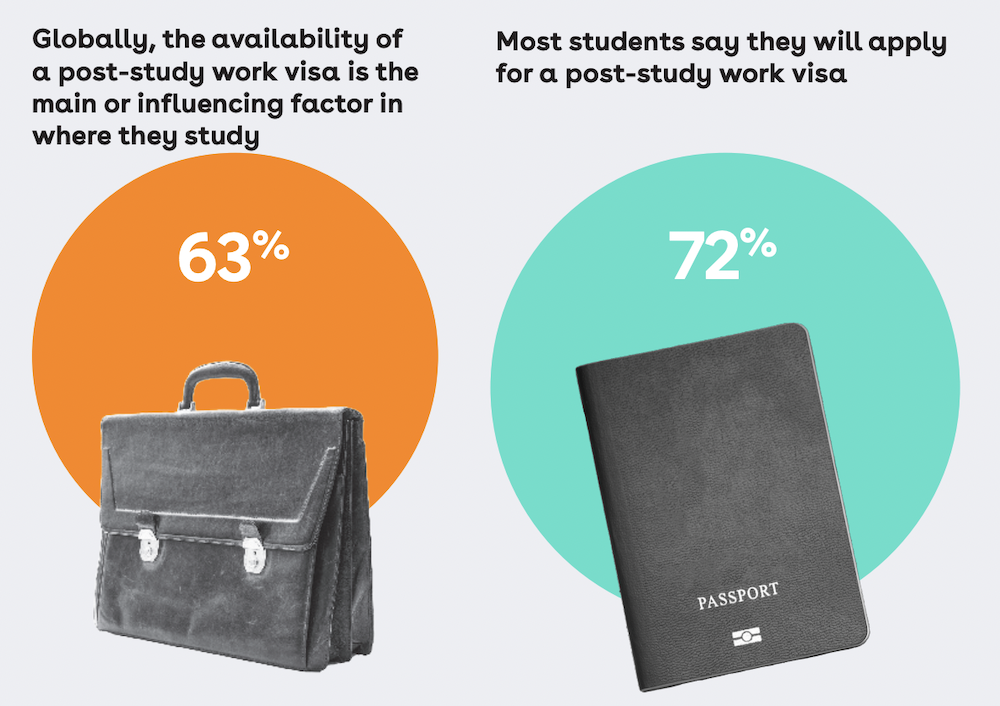
Photo: IDP Connect
“If policy makers, educators and employers can link up in meaningful ways, then we will see… more skilled and educated people entering the workforce, and a better return on their individual investment for the student,” Emmett added.
He referred to the recommendation in the report that more work is needed to “further increase awareness of the contribution students make as employees”.
“[There is a need] to help industry better understand post-study work rights, and to improve access to work opportunities for international students,” Emmett affirmed.
“There is still much to play for”
It is not just post-study work that matters to international students, but part-time work during study – a whopping 81% of international students are intending to, or already, working part-time to help finance their studies.
Some 31% even said that it would be the main method of financing those studies – but crucially for institutions and student support networks, 71% of those surveyed want help finding that work.
Additionally, due to a cost-of-living crisis that is affecting major destinations around the world, 51% even said they are reconsidering the idea of study abroad altogether.
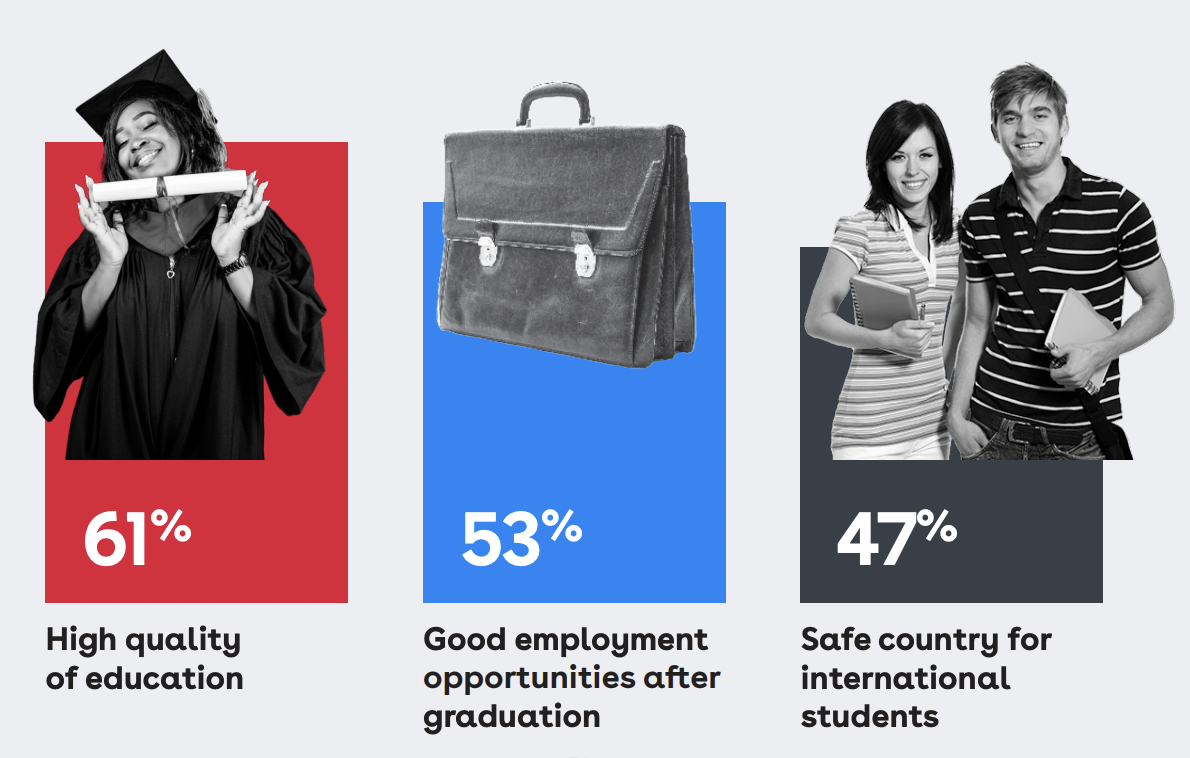
Photo: IDP Connect
“As the cost-of-living increases, the research highlights that students need more support and guidance.
“They are looking to institutions to support them in finding part-time jobs and to provide clear and transparent guidance about the total cost of their education,” Emmett said.
Despite the need for support, students are not completely in the dark – 61% said they were “confident they have enough money to live whilst studying”.
Some 21% said they were also “highly knowledgeable” when it came to how much their studies will cost.
The latest iteration of the research surveyed double the amount of international students it did in the second edition, which was released during 2022’s AIEC conference.
While Canada remains the most popular choice for international students, with 27% saying it is their first choice, Australia’s attractiveness has slightly lowered since Emerging Futures Two, dropping two percentage points to 23%.
Australia is currently grappling with perception problems facing their visa system, with one commentator labelling the current setup a “Ponzi scheme” in a recent subcommittee.
“As the cost-of-living increases, it highlights that students need more support”
The UK also suffered, dropping to just 18% considering it as a first choice – but the US fared well, climbing back up to 21% and third on the table.
Despite a recent wobble in US international education with some confusion around third-party guidance – which would have decimated the US’ sector – this has now been resolved with an exemption for study abroad.
In any case, competition for the top spot is “fierce”, the report states – 34% of those surveyed were thinking about studying in three out of four of the major destinations.
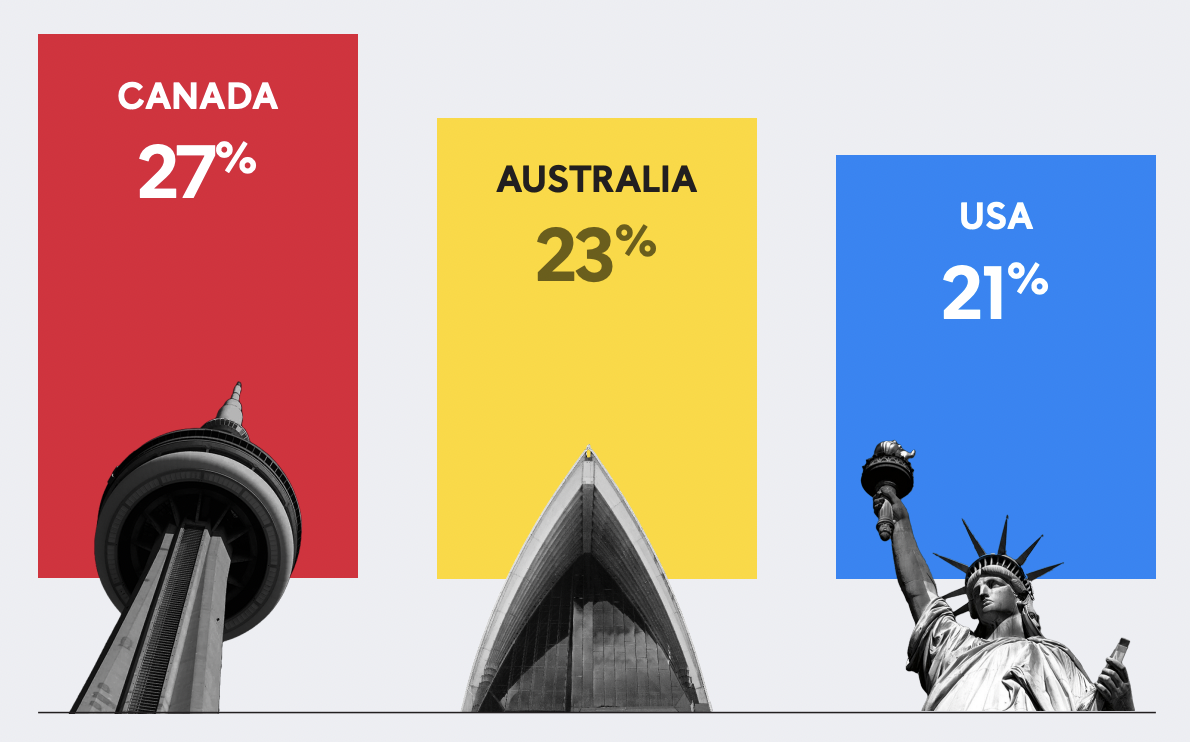
Photo: IDP Connect
“With most countries experiencing a strong post-pandemic recovery of international students, our research findings on global choice show there is still much to play for, with the US, in particular boosting its attractiveness,” Emmett commented.
In terms of driving factors within first choice countries, it is not only post-study work that is influential – whilst 53% said post-study work rights were important, 61% said the high quality of education was still what really mattered to them.
Some 47% also said that the safety for international students was a driving factor – something that gave Australia an advantage in previous research.
Respondents for the survey came from 108 different countries – Nigeria being the largest cohort, with India and China close behind – but Ghana also surged on the list as the fourth largest cohort.
“Creating diverse cohorts of students not only adds to the richness and vibrancy of the student experience but leads to less reliance for universities on a small number of countries.
“Importantly, when we welcome students from a range of backgrounds into our institutions, our wider community benefits from the diversity of perspectives, ideas and connections they bring,” Emmett added.
Some 57% surveyed were going for postgraduate study – two percentage points up from the 55% in the previous research – while undergraduate study was down two percentage points to 25%.
The post Post-study work “a driving influence” for int’ls – report appeared first on The PIE News.


